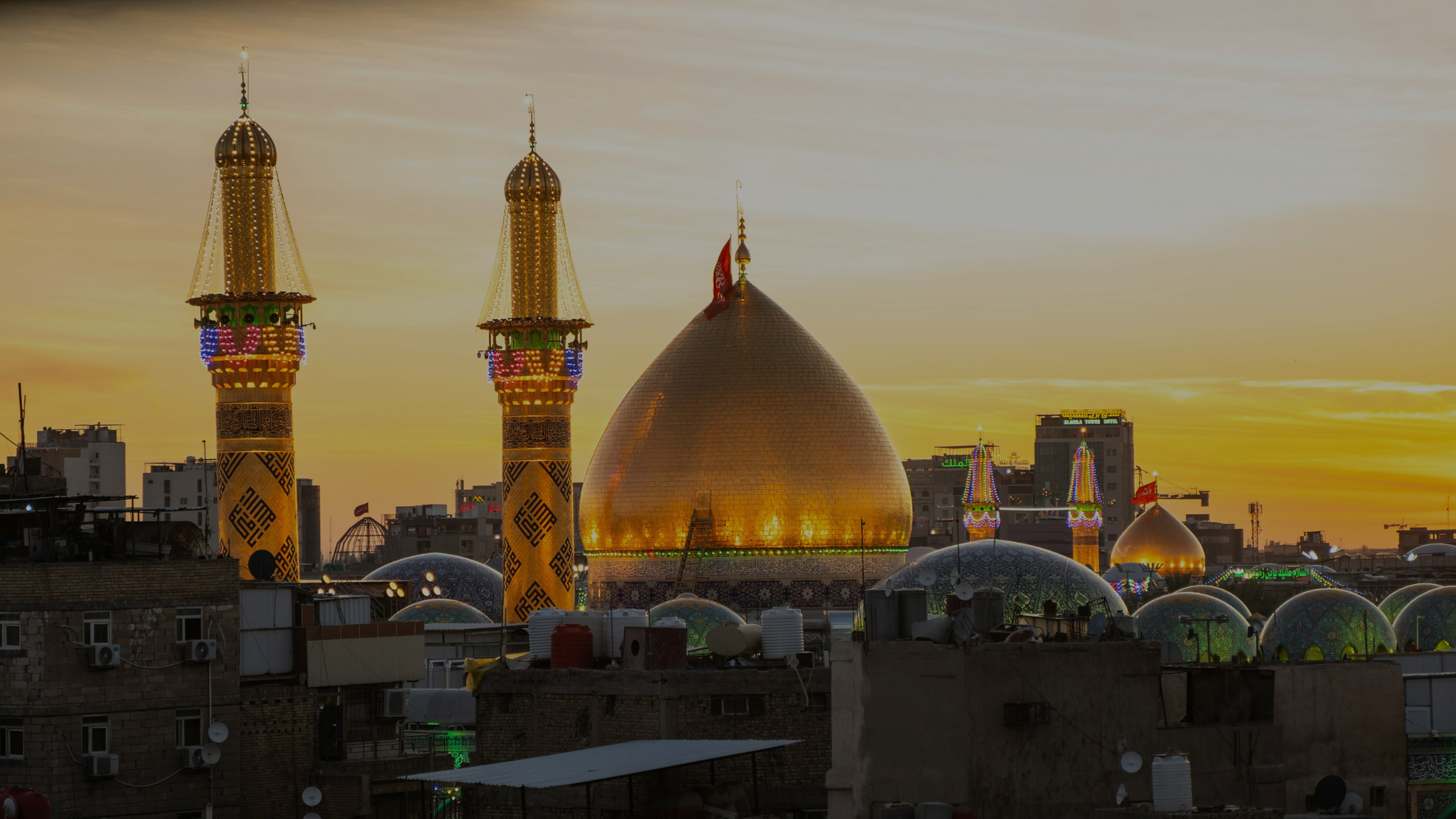
“Salutations from the ones whose hearts are wounded due to the tribulations you have suffered, and whose tears flow in your remembrance.” - Ziyarat Nahiya
In a world focused on constant movement and hyper productivity, the remembrance of the martyrdom of Imam Hussain in the plains of Karbala brings with it a unique period of stillness. As we put aside everything we are, to offer our presence to this tragedy, we are shaped anew.
Our salutations, our tears, and our grief for something so much bigger than ourselves not only bind us to Karbala but also to our shared humanity: new mothers lovingly bringing their children to a majlis for the first time, mothers my mother's age sobbing as if their loved one died, the fervor of the loud cries from the men's side, those that sit quietly in the corners when the reciters recite a certain elegy because standing seems impossible in front of the grief of familiar words, the collective holding of breath on the night before Ashura because we all know the borrowed night will come to an end the moment the call for the morning prayer starts, the loud wails and the soft tears, the hopes and pleas and promises, the utter helpless desperation of grief as if the world will end, and the absolute witnessing of what it means to love God.
Because the memories and remembrance of the oppressed have always been suppressed and rewritten in history, this act of remembrance and collective grief too is a form of resistance. It actively teaches us today to write our own narratives, to hold our own mournings, and to not let the oppressors erase our people out of existence. It helps us recenter our intentions, makes space for our personal griefs, softens our hearts, and answers our questions.
But beyond this remembrance, how must we receive, embody, and enact the message of Imam Hussain? Where must we bring a clarity and belief so great in God that we offer the whole of ourselves to it? How do we find God amidst a burning world?
As we reflect on the tragedies around us, it is easy to question the presence of God. If a merciful and just God exists, where is He during times like these. We learn from Qur’an 2:115 that it is not God’s presence that is missing; it is ours, for “to God belong the east and the west, so wherever you turn, there is the face of God…”
In tandem with this, Karbala teaches us that in the face of injustice, the Imam gave everything in the way of God. In order to attain God’s presence we must be willing to do the same. Just like in Karbala, the injustices around us are man-made, not divine sufferings. The Palestinian people aren’t dying, they are being killed. The malnourished skeletons of children we see on our screens aren’t starving, they are being starved. Incarcerated people are being erased from memories, families are being torn apart, narratives are being rewritten. And yet, we remain as passive as ever.
We draw many analogies from the tragedy of Karbala, sometimes diluting the immense grief and injustice of it all. But there truly is no better example of what it means to love and to live and to be human, to understand what our lives are meant to be and to then live that life according to it, to exercise that agency, to not be distracted, to not be consumed by the world, to not consume the world in excess, to know that the thing we are always looking around for to satisfy our hearts can only come from God, not things, to not just know but truly believe that the ultimate meaning of being human is to give ourselves entirely to God. If Imam Hussain, the beloved son of Imam Ali, whom the world has been gifted to, and Sayyeda Fatima, whom paradise has been gifted to, did not turn to his God to complain or despair, then we must not also. We must seek refuge in God but we must remember to do justice to our creation as humans with agency.
The lives and stances of those at Karbala teach us that there is nothing worse than being complacent. Imam Hussain has taught us that at its extreme, death is better than living an unjust life. Our breaths must be worthy, our lives must be worthy, our death must be worthy. They are above all a borrowed thing granted to us from God in this short span on earth.
Finally, the message of Karbala exists everywhere. I have most recently found it in the lines of a dear poem by Ilya Kaminsky, “A City Like a Guillotine Shivers on Its Way to the Neck.”
“At the trial of God, we will ask: why did you allow all this?
And the answer will be an echo: why did you allow all this?”
I pray that we follow in the footsteps of Imam Hussain and do not allow injustices to happen around us with all the means that we can.



1 comment
Thank you for this article showing that your company is aiming to unite the Oummah by giving a voice to every part of the community. And thank you to the author for reminding us that the path to Allah is through justice like the Prophet (sws) taught us and like Imam Hussein reminded us years later. Such great examples to follow during these troubled times.
Leave a comment